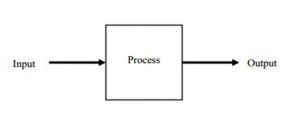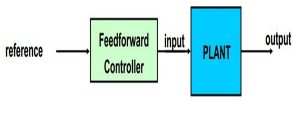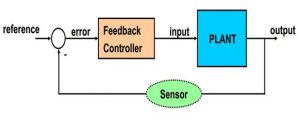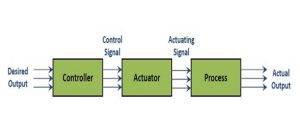Home › Electrical Engineering Forum › General Discussion › Introduction to Control Systems
- This topic has 8 replies, 2 voices, and was last updated 10 years, 3 months ago by
Anonymous.
-
AuthorPosts
-
2014/03/05 at 12:09 pm #11143
admin
KeymasterOur tutorials maker Nasir is back with a new theme: Control Systems. 10 parts are planned, so enjoy the first one!
Control system is a way of arranging and combining components in such a way that the desired output is obtained. In other words, a system is said to be “controlled”, if it’s working in a stable mode without getting unstable in any span of time.
From the above definition, one can say that a controlled system must have two attributes, which are:
- Stability
- Desired output
A control system can be functioned electrically, mechanically, pressure by fluid (gas or liquid), or it can be combination of these ways. But it more preferred to operate this system by electrical means especially when computer is involved, even though interfusion are common these days.
Variables Involved in a Control System
In designing a control system, two types of variables are normally involved. These variables are used in control system to achieve the required position.
1. Controlled Variable
It is the value or prerequisite that is determined and controlled. These variables are independent variables and are usually not influenced by external factors. These variables are controlled by the engineer, designing the control system, and those values are chose for these variables at which the system gives the best output.
2. Manipulated Variable
The value or prerequisite that keep on changing as the controlled variables are changed. These variables are dependent variables and usually dependent on controlled variables. Let’s take a simple example of a fan dimmer.
As someone changes the dimmer position i.e. changes the voltage, rpm of fan also decreases. In this example, voltage is the controlled variable while rpm of fan is the manipulated variable.
Types of Control Systems
There are three basic types of control systems that are feed forward control systems, feedback or closed loop control systems and the third type is open loop control systems. Let’s have a look on the functionalities of these different control systems.
1. Feed Forward Control System
Feed forward is a type of system which counters the changes in its surroundings. It is used to maintain the wanted status of the system. The biggest advantage of this system is that it doesn’t permit the huge disturbance in the output.
A system working on feed-forward behavior reacts to a calculated disturbance in a pre-defined way which is in contrast with a feedback system. It is used in automotive as engine torque demands, in servo systems (robotics) etc.
2. Feedback or Closed Loop Control System
A feedback control system is also known as closed loop control system. In these systems out is recorded and alternations are made on the basis of feedback. It can generate the desired output condition compared to the original one. It is insensitive to external disturbances. It useful as the output of system can be measured with ease.
3. Open Loop Control System
An open-loop control system is also referred as a non-feedback control system. These systems may not require a mathematical model of the physical system. It takes input under the consideration and doesn’t react on the feedback to determine the state of output. It doesn’t encounter any disturbance within the system or recompense them.
Stepper motors are one of the major examples of open-loop control systems. Automatic washing machine is yet another good example.
Conclusion
Control systems today have various uses. In industry these systems are used to control the production or working of other machines. Different types of control systems work on different purposes. Control systems manage the behavior and working of a machine.
The usefulness of control systems is in the precision and reliability of functions and equipment they can deliver. The field of control systems has its roots in industry and home appliances as well.
In this tutorial I have just introduced the control systems, its basic types and their working. In the next article I will be analyzing open loop and closed loop control systems in more detail and will study what differentiates the two.
So keep connected for the upcoming informative tutorials.
Nasir.2014/04/01 at 3:19 am #13425Anonymous
GuestThanks to Nasir for an interesting article based on the introduction of a control system. I really enjoy reading it.
2014/04/27 at 11:04 am #13432Anonymous
Guestits very good explanation for the beginneer System control engineering….
2014/04/30 at 2:50 pm #13435Anonymous
GuestWhat about DCS -Distributed control systems which are used in power plants?
2014/05/13 at 3:17 am #13467Anonymous
GuestSpot on with this write-up, I really think this amazing site needs a
lot more attention. I’ll probably be returning to read more, thanks
for the information!2014/05/29 at 7:40 am #13468Anonymous
GuestHello! I’ve been following your web site for some time now and finally got the bravery to go ahead
and give you a shout out from Dallas Tx! Just wanted to tell you keep up the fantastic work!2014/05/29 at 9:40 pm #13469Anonymous
GuestHaving read this I thought it was extremely informative.
I appreciate you finding the time and energy to put this short article together.
I once again find myself spending a significant amount
of time both reading and commenting. But so what, it was still
worthwhile!2014/07/15 at 3:05 pm #13486Anonymous
GuestI tend not to leave a response, but I browsed some of
the comments on Introduction to Control Systems2014/08/23 at 5:16 am #13528Anonymous
Guesti suggest to mr nasir, pls introduce also system diskrete control Engineering.
-
AuthorPosts
- You must be logged in to reply to this topic.



